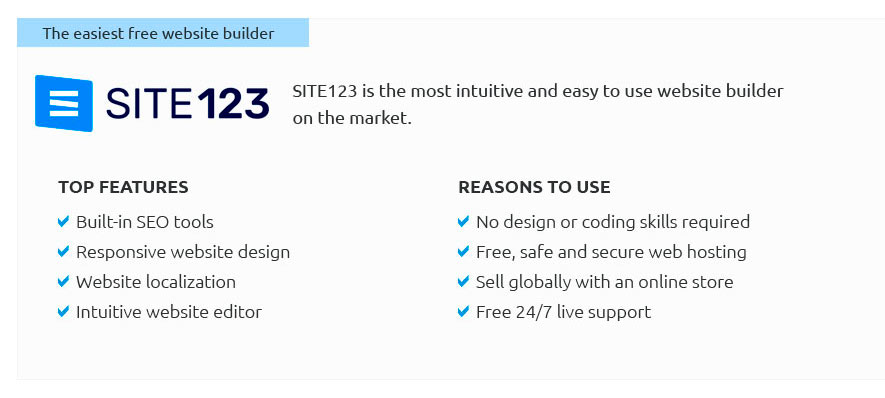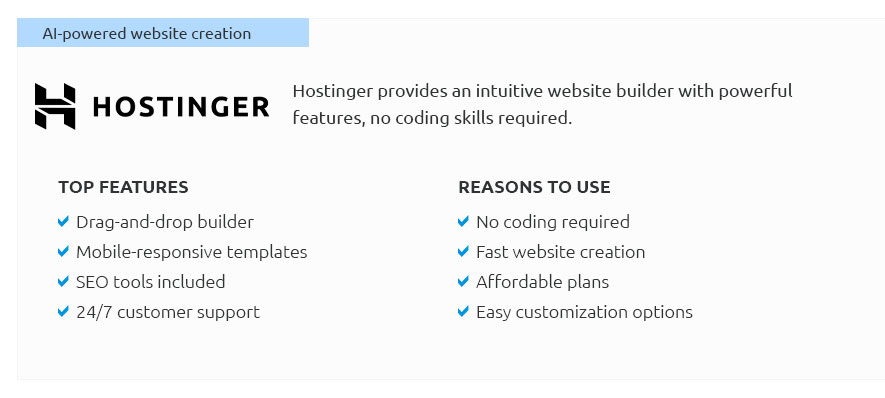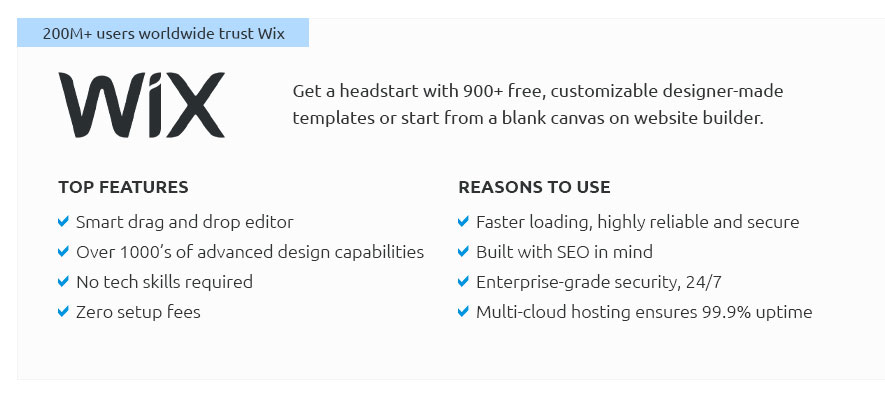 |
 |
 |
 |
|
 |
 |
 |
|
 |
|
 |
 |
|
 |
|
 |
|
 |
 |
How Can I Make a Website for My Small Business: A Comprehensive GuideCreating a website for your small business is an essential step in today's digital age. A well-crafted website can help you reach a broader audience, showcase your products or services, and establish your brand's online presence. This guide will walk you through the process of building a website using basic tools and techniques. Why Your Small Business Needs a WebsiteHaving a website offers numerous benefits, including increased visibility, improved credibility, and a platform for customer engagement. A professional website can set you apart from competitors who rely solely on social media or local advertising. Planning Your WebsiteDefine Your GoalsBefore building your site, clearly define what you want to achieve. Are you looking to sell products online, provide information, or generate leads? Having specific goals will guide your design and content decisions. Identify Your Target AudienceUnderstanding your target audience is crucial for tailoring your website's design and content. Consider their preferences, needs, and the type of information they seek. Choosing the Right ToolsThere are many tools available for building a website, ranging from simple drag-and-drop builders to more complex platforms. A popular choice for beginners is a web maker online that offers user-friendly interfaces and customizable templates. Register a Domain NameYour domain name is your online address. Choose something memorable, relevant to your business, and easy to spell. Registering a domain is a simple process through various online registrars. Select a Hosting ProviderWeb hosting is essential for making your website accessible on the internet. Look for a reliable hosting provider that offers excellent customer support and scalable plans. Designing Your WebsiteChoose a TemplateMost website builders offer a variety of templates. Select one that aligns with your brand's aesthetics and is responsive, ensuring it looks good on all devices. Customize Your DesignPersonalize your website by adding your logo, choosing color schemes, and customizing fonts. Keep the design clean and professional to enhance user experience. Adding ContentWrite Compelling CopyContent is key to engaging your audience. Write clear, concise, and persuasive copy that highlights your products or services and includes calls to action. Include Essential Pages
Optimizing for SEOSearch Engine Optimization (SEO) helps your website rank higher in search results. Use relevant keywords, meta descriptions, and alt tags for images. Link to authoritative sources like data base website to boost credibility. Launching and Maintaining Your WebsiteOnce your website is ready, launch it by publishing your content and promoting it through social media and email marketing. Regularly update your site with fresh content and check for any technical issues. FAQWhat is the first step in creating a website for my small business?The first step is to define your website's goals and identify your target audience. This will guide your design and content decisions. How do I choose a domain name?Choose a domain name that is memorable, relevant to your business, and easy to spell. Register it through a reliable domain registrar. What should I include on my website?Include essential pages such as a home page, about us, contact page, and detailed product or service pages. Ensure your content is engaging and informative. Why is SEO important for my website?SEO is important because it improves your website's visibility in search engine results, driving more traffic to your site and increasing your business's online presence. https://www.youtube.com/watch?v=QF8bEQO7MGQ
... make more videos for you guys. Thanks for watching ! FOLLOW ME EVERYWHERE! MY INSTAGRAM https://www.instagram.com/IHNINNI/ ROSE ... https://www.reddit.com/r/webdev/comments/eozqi5/how_to_build_websites_for_local_small_businesses/
Recently, I've been asked by my Mum to make her a small website to advertise a holiday house. ... Develop a website for small home business with ... https://www.wpbeginner.com/wp-tutorials/how-to-make-a-small-business-website-step-by-step/
What to Prepare Before Making a Small Business Website - Step 1. Get a Domain Name and WordPress Hosting Provider - Step 2. Install WordPress on ...
|